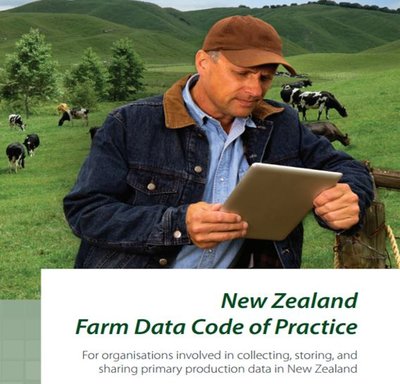The emerging trend of digital farming triggered a debate about the ownership over data generated on the ground or rather in the field. Tools like decision support systems (DSS), which are based on algorithms, require a specific amount of data. For instance, weather forecasting tools depend on this crucial amount of Big Data to function. The term Big Data describes large building blocks of small pieces of information aggregated in a comprehensive way to create added value and knowledge.
In these regards, it is essential for future stakeholders in data service markets to obtain reliable information in a fast and extensive manner. When it comes to agriculture, many sensors are already available for field application or pre-installed in 70 % of all sold machinery. The capability to access this data through ICTs like online communication ultimately renders farm management possible.
However, data is increasingly collected without consent, previous agreement, or transparency. Despite being legal, data collection without consent hampers trust between actors and subsequently the development of the digital markets. Thus, it is time to debate interests and expectations since the GDPR[1] foresees to remove restrictions impeding the free flow of data. Tackling these impediments is a prerequisite for the Digital Single Market implementation which is estimated to boost European economy by 415 billion Euros. When it comes to the agricultural sector, the European commission has set the following attention points on the agenda:
- Contractual conditions of data exchange
- Data ownership along the entire life cycle
- Legal issues regarding liability and risks
- Interoperability
Code of Conduct on Data Exchange
To provide regulatory guidance to major stakeholders, including the organisations for farmers & cooperatives COPA-COGECA, the European agricultural machinery CEMA, and the nutrients industries Fertilizers Europe, lead an initiative to ensure fair sharing of digitization benefits in agriculture. They were joined by the European Crop Protection Association (ECPA), European Seed Association (ESA), FoodDrinkEurope, European Feed Manufacturers' Federation (FEFAC) and the European association representing the trade in cereals, rice, feedstuffs, oilseeds, olive oil, oils and fats and agrosupply (COCERAL). The initiative resulted in a Code of Conduct protocol - inspired by similar ones from Germany, the Netherlands or New Zealand - which is pending the approval of all board members. 
All board members agree that the owner of the generated farm data is supposed to be the farmer itself. Thus, farmers should be asked permission by any company planning to use this data. This overarching principle requires accurate definitions to achieve beneficial results for the agricultural sector, assure transparency, and legal liability.
As CEMA recently explained at the Agridata Summit in Madrid, farmers have multiple provider-client relationships based on contracts. Any new contract should enhance stakeholder trust and must not override the general legal framework. This ensures the facilitation of data exchange, so innovative technologies or services based on data analytics can better deploy their potential for European agriculture.
One goal of COPA-COGECA is for farmers to have a share in the profits made of digitization. This can be reached if the ownership of produced data is kept at originator level during the whole life cycle. Second party is essentially an entity using somebody else’s first party data. Third party refers to data aggregators which typically purchase information on a large scale from publishers. Hence, close attention must be given to information which can identify individual farmers or affect their respective privacy and security. Moreover, data collection or storage by other parties must be disclosed and traceable through the underlying metadata.
Since legal documents fall solely under the competence of the EU and national decision makers, the Code of Conduct protocol set up by the board members will only highlight shortcomings in the existing legislative framework. Additionally, its aim is to create trust, transparency and responsibility in terms of data sharing within the agri-food chain.
References
[1] Amid the General Data Protection Regulation (GDPR) by which the European Union intends to unify data protection for all its citizens in May 2018, the European Legislator does not yet recognize ownership of data in the same way as physical assets.
